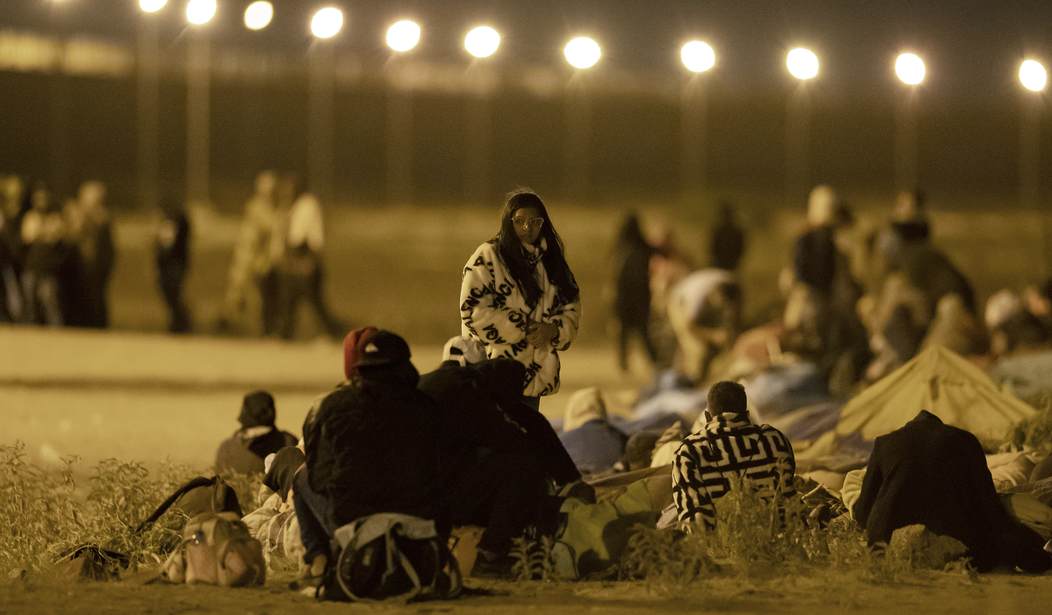


“This is something I would have expected under the old administration, not under this administration,” whined Tom Cartwright, an advocate with Witness at the Border. Cartwright and ten other advocacy groups sent a letter to the White House complaining about the Biden administration distributing video of illegal alien families boarding deportation flights to repatriate them back to their own countries.
The video was designated “B-roll for removal flights” by the White House, meaning that TV stations and networks could use the content as background filler for stories about the federal government deporting illegal alien families.
But the advocacy groups were angered by what they called “exploitation.”
“The use of this footage is shocking and dehumanizing, and ICE should immediately discontinue it,” read the release, led by the National Immigrant Justice Center (NIJC).
“Entirely missing from these frames is the complexity of the human story behind each family, including the love, devotion, and courage that led that family to leave their homes in search of safety and the trauma of being forced back to danger. The blurred faces, militarized surroundings, and police pat downs of parents clinging to their children dehumanizes these families and portrays them as threats.”
There are tens of millions of such stories, and there isn’t enough bandwidth on the planet to accommodate everyone’s tale of woe. That’s why there are rules about entering the country illegally. And that’s why instead of just throwing open the borders and allowing everyone in, there is a process — imperfect and sometimes heartless — but until the advocates and their allies in the Democratic Party come up with something better, it’s what we’ve got.
I have no doubt that there are many people in danger. But unless someone is specifically being targeted by an unfriendly government, a drug gang, or another criminal element, he must wait his turn. Just because a country is dangerous doesn’t mean that everyone from that country is in “danger.” That’s what our asylum laws are for.
In the Biden administration’s carrot-and-stick approach to immigration policy, the videos are part of the stick — attempts both to deter migrants from coming to the United States and to curtail Republican attacks over conditions at the border.
“These are people who have in many cases [fled] to the United States for safety. And we turn around and basically dehumanize them to make a point about our immigration or about our strong immigration stance,” said Tom Cartwright, an advocate with Witness at the Border, one of the groups that signed the appeal.
The advocates claim that “deterrence” doesn’t work to reduce illegal immigration. Statistically, that may be true. But since the alternative is to throw open the borders and let anyone in, as a matter of choice, most Americans would choose to try deterrence.
“The U.S. government has been trying to discourage migration to the United States using the deterrence framework, officially at least since 1994, and just continues to ignore the fact that there’s absolutely no evidence to suggest that it has ever worked,” said Heidi Altman, director of policy at NIJC.
ICE’s choice to publicly tout tough enforcement angers advocates, especially in the wake of violent attacks like the 2019 El Paso mass shooting, where a gunman who expressed xenophobic intent killed 23 people.
“It’s been clear for a while now that the political discourse around immigration is increasingly xenophobic, increasingly includes dehumanizing references and images and call-outs,” said Altman.
In truth, Biden’s border policies are as liberal as any administration since the 1960s. When there’s a backlog of cases in immigration courts of five years or more, someone is letting an awful lot of people into the United States. And while there are many tens of thousands of illegal aliens arrested at the border who are sent back, there are tens of thousands of people who are allowed to stay in the U.S. while their immigration cases work through the courts.
It’s an unsatisfactory situation all around, and if advocates were really interested in addressing the problem humanely instead of politically, they’d do everything they could to make entering the United States an orderly, legal, and fair process.
